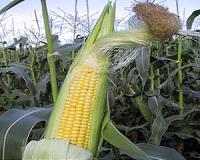 |
Los Banos, Philippines (UPI) Aug 17, 2010 Asia's rice production is in danger from rising temperatures due to climate change, a new study says. Rising temperatures during the past 25 years have already slashed the yield growth rate of rice by 10 percent to 20 percent in several areas, notes the study, published by the Proceedings of the National Academy of Sciences. About 3 billion people eat rice every day, and more than 60 percent of the world's 1 billion poorest and undernourished people who live in Asia depend on rice as their staple food, says the Philippines-based International Rice Research Institute. ??"If we cannot change our rice production methods or develop new rice strains that can withstand higher temperatures, there will be a loss in rice production over the next few decades as days and nights get hotter," said Jarrod Welch, lead author of the report. ?? "This will get increasingly worse as temperatures rise further towards the middle of the century," Welch said. While a rise in daytime temperatures could boost the growth of rice, the report says, increases in nighttime temperatures could reduce rice yields by as much as 10 percent. Because rice is grown in low-lying deltas and coastal areas in Asia, it is one of the crops most vulnerable to climate change. In Vietnam, for example, more than 50 percent of rice production is grown in the Mekong River delta, all of which would be affected by sea-level rises, the report states. Flooding caused by rising sea levels puts as much as 49 million acres of rice-growing area at risk of being submerged, the report says. To boost rice yields, IRRI scientists are working on enhancing rice's photosynthetic efficiency. Named the C4 rice project, for its goal to develop the rice so that its photosynthesis would be more efficient like C4 plants -- such as maize and sorghum -- which require 1.5 to 3 times less water for growing. Rice is a C3 plant. "Fifteen months into the project, things are looking positive," Paul Quick, principal scientist and head of IRRI's C4 rice project, told IRIN, the news service of the U.N. office for the Coordination of Humanitarian Affairs. If the research is successful, IRRI claims that global yields could rise by as much as 50 percent and so would prevent potential rice shortages or famines. Quick admits that the project, which receives funding from the Bill and Melinda Gates Foundation, is seen as a high-risk scientific venture, "but this is nothing compared with the potential future risks to human health if food supply cannot meet demand."
Share This Article With Planet Earth
Related Links Farming Today - Suppliers and Technology
 Scientists Find The First Evidence Of Genetically Modified Plants In The Wild
Scientists Find The First Evidence Of Genetically Modified Plants In The WildWashington DC (SPX) Aug 16, 2010 Research is continually emerging on the impacts of invasive species, pollution and environmental disasters on ecosystems and communities. Ecological scientists will discuss widespread environmental changes-from the recent discovery of genetically modified plants in the wild to the implications of mercury found in bottlenose dolphin skin, and even exploring society's reactive mode toward environm ... read more |
|
| The content herein, unless otherwise known to be public domain, are Copyright 1995-2010 - SpaceDaily. AFP and UPI Wire Stories are copyright Agence France-Presse and United Press International. ESA Portal Reports are copyright European Space Agency. All NASA sourced material is public domain. Additional copyrights may apply in whole or part to other bona fide parties. Advertising does not imply endorsement,agreement or approval of any opinions, statements or information provided by SpaceDaily on any Web page published or hosted by SpaceDaily. Privacy Statement |